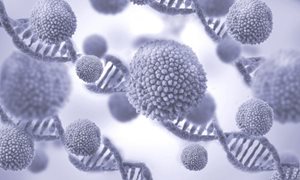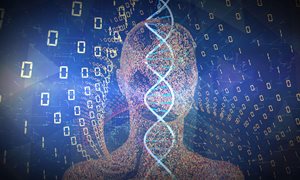
A team of researchers is going to look for new and better ways to heal developmental disorders in the brain. Six different knowledge institutions (including the initiator and coordinator Vrije Universiteit Amsterdam) are to collaborate with civil societies, professional associations and companies on new stem cell-based methods in a project entitled ‘BRAINMODEL’. The Netherlands Organisation for Health Research and Development (ZonMw) has allocated a grant of 4 million euros for this work.
The DNA abnormalities responsible for many brain disorders are becoming increasingly clear but there is still no effective systematic approach for linking this knowledge and the underlying biological mechanisms to the treatment options.
Living nerve cells in a dish
BRAINMODEL’s new approach is based on patient-derived cells with which networks of living nerve cells are produced in a culture dish. These closely resemble the neural networks in our brains. This is known as ‘pluripotent stem cell technology (iPSC)’ and offers new opportunities in terms of understanding human diseases and finding personalized treatments. IPSC-based strategies are particularly promising for developmental brain disorders, because they overcome the problem of not having access to brain tissue to study underlying causes.
Optimal treatment
The BRAINMODEL consortium aims to integrate these methods with diagnostic techniques and relate them to other technologies such as EEG (with which brain activity is measured electronically) to find the best possible treatment for individual patients. BRAINMODEL thus hopes to help optimize therapy choice and make the treatment of brain disorders more successful. At the same time, the researchers will address the ethical and social questions associated with using these technologies together with patients, patient organizations, clinicians, representatives from industry and other societal partners in the consortium.

Researchers involved in BRAINMODEL, from left to right: Dr Dirk Schubert, Prof. Floris Rutjes, Dr Klaus Linkenkaer Hansen, Dr Nael Nadif Kasri, Dr Niels Cornelisse, Gianina Cristian, Dr Eline Bunnik, Renee Lustenhouwer, Lisa Geertjens, Prof. Matthijs Verhage, Lara Janssen, Dr Ruud Toonen, Miriam Öttl, Dr Claudia Persoon, Torben van Voorst, Prof. Hilgo Bruining, Hanna Lammertse, Annemiek van Berkel, Dr Jennifer Ramautar, Maaike van Boven, Prof. Tjitske Kleefstra
Linking analyses to measures of outcome
BRAINMODEL’s main objective is to use iPSC-based analyses to detect abnormal cellular functions in material from patients with brain disorders and to link these to clinical outcome measures, such as EEG biomarkers and patient-relevant symptom scales. The latter work will be carried out in collaboration with two clinical centres: the N=You Kenniscentrum (N=You Knowledge Centre) in Amsterdam and the Radboudumc expert center for rare genetic disorders in Nijmegen. The researchers will subsequently test whether abnormal cellular properties, which cause an imbalance between the positive and negative signals that nerve cells send to one another, can be remedied with existing medication in the iPSC-based analyses. If this is the case, the physicians at the associated clinics can use this medication to treat the patients in question. If no existing medication can be found to remedy the abnormal properties, BRAINMODEL will use specially-developed nanochip technology to carry out iPSC-based analyses on a larger scale. This method will enable large-scale drug research, including the design of new drugs. To this end, cellular analyses will be automated and scaled up by culturing human nerve cells on nanochips. This way, a hundred times more drugs can be tested and new drugs can be developed.
PSIDER
The BRAINMODEL consortium was founded by Matthijs Verhage (Vrije Universiteit Amsterdam and Amsterdam UMC, chairperson) and Nael Nadif Kasri (Radboudumc, vice chairperson). Other knowledge institutions represented in BRAINMODEL are Erasmus MC, University of Twente, Radboud University and the Radboudumc expert center for rare genetic disorders. The consortium has received a grant of four million euros from ZonMw within the framework of the grant call ‘Multidisciplinary Consortia Programme Pluripotent Stem cells for Inherited Diseases and Embryonic Research’ (PSIDER). For more information and a list of all the partners in the consortium, please see www.brainmodel.nl.
-
Want to know more about these subjects? Click on the buttons below for more news.
Related news items

Micro-Cosmos helps patient unwind during hospitalization
10 February 2022 Nijmegen-based Micro-Cosmos is a start-up that makes retractable hoods to speed up the recovery of hospitalized patients. go to page
LUMO Labs and Oost NL invest in Aiosyn Investment accelerates development of artificial intelligence platform to improve diagnostics
7 February 2022 Aiosyn, a spin-off from Radboudumc, has received an investment from LUMO Labs. Oost NL is a co-investor. go to page
T-Guard can reset immune system
1 December 2021 For 20 years, the Nijmegen based Radboudumc spin-off company Xenikos has been working on a drug that can reset the immune system. This reset will save lives of seriously ill patients. Now, after years of hard work, the moment of truth has arrived for T-guard. go to page
Dutch-Nordic Alliance for Precision Cancer Medicine launched
26 November 2021 The Nordic countries (Denmark, Sweden, Norway, and Finland) are together setting up national clinical precision cancer trials modelled on the very successful DRUP trial in the Netherlands. go to page
Epigenetics: Immunization is passed on to offspring Mice transmit adaptations to infections to next generations
19 October 2021 Does an infection affect the immunization of subsequent generations? It does, according to research now published in Nature Immunology. go to page